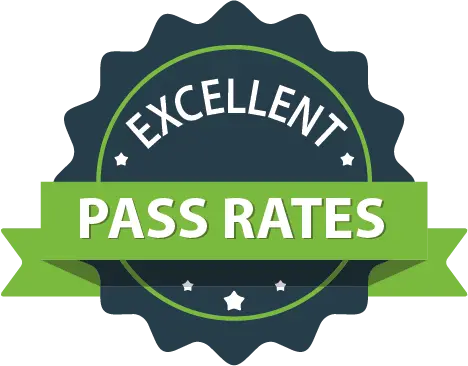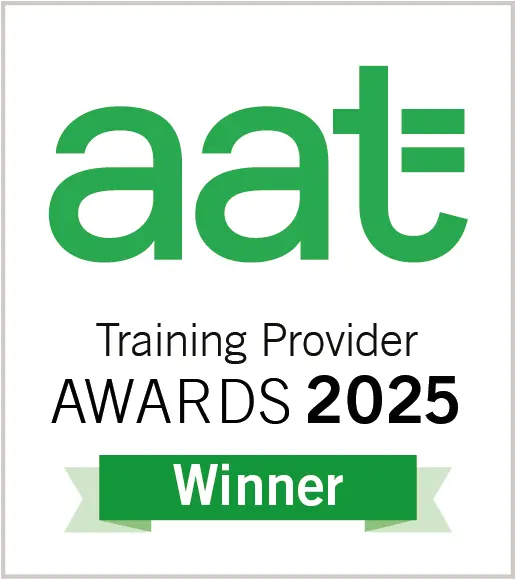
Overview of the examiner’s report for the AAT Advanced Diploma Synoptic Assessment
I understand there has been a lot of upset and frustration relating to the AAT Advanced Diploma Synoptic, and learners have lost confidence in the exam. Although teething issues are expected when a qualification is new or revised, no-one expected the issues to be so excessive. This was acknowledged by the AAT in the recent apology they issued.
Moving forward it is pleasing to see that recent synoptic windows have had very few technical issues with the majority of centres not experiencing any issues at all.
The synoptic covers ALL the mandatory units plus the ethics for accountants and spreadsheets for accounting. So DO NOT neglect the mandatory units when you start preparing for the exam.
It is clear that the second part of the synoptic, the spreadsheet section was the area students experienced the most difficulties. However, not all students had technical difficulties as some students struggled due to lack of knowledge and understanding of spreadsheet software.
Task 1.1
A good understanding and knowledge of professional ethics and the ethical code was clear. However, weak reading skills let down the student’s performance. It is important to understand the meaning of the principles not just to remember them.
TIP – RTFQ Read The Flipping Question. Make sure you take your time and read the WHOLE question before starting your answer. You cannot assume you know what is going to be asked so take your time. Jot down the important facts on scrap paper so you can plan your answer.
Task 1.2
This task tested a variety of subject areas such as advanced bookkeeping, accounts preparation, VAT and some professional ethics. As this was a computer marked question this should have been answered correctly. Some calculations were required however the majority of the question was testing your skills. Again not reading the question thoroughly impacted on the students responses and caused marks to be lost, and a lack of understanding of double entry bookkeeping was demonstrated.
TIP – remember double entry bookkeeping is the foundation of your skills. Therefore, use your resources from the foundation level to help refresh your skills and understanding. There is no shame in going backwards to move forwards.
Task 1.3
This written task was to assess understanding of Management and Financial Accounting and how they link. The students that performed well on this task followed a methodical approach which required calculations and explanations in the form of an email.
It was clear from the results that students understood financial accounting a lot more than management accounting. This may be due to the number of modules that have previously been studied. As there are more financial related modules than management related, BOTH areas need to be understood in order to give students the best chance of passing. The examiner’s feedback states that “some students that had attempted to answer this task achieved no marks due to the answer not following a clear and logical manner”.
Common areas tested are the break-even analysis, margin of safety and areas testing understanding of overhead recovery which could relate to the overhead absorption rates.
TIP – use a logical approach on a question like this. State the obvious and then expand on it. Where calculations have been made, use these within the written response. Make sure you read the question carefully and answer the question clearly. If the examiner cannot understand what you have written you will achieve NO marks.
Task 1.4
It is clear that technical accounting knowledge is not an issue for students however; many need to understand how sustainability can affect businesses and why it is important. Again, grammar and spelling was an issue to the extent that some student’s answers did not make sense and were contradictory. Students need to understand accounting and not just be able to post transactions. Students also need to be able to explain all aspects of accounting so a thorough understanding is essential.
TIP– When you are attempting a question that requires a written response answer it in a methodical manner and ensure it is written in an appropriate style. So if the question asks you to write it in report style do not write it as an email. Plan the report according to the requirements. As you work through your studies keep asking yourself “if someone asked me to explain what I am doing could I?” If you answer YES you can be confident that whatever the written task you will be able to gain some marks based on your knowledge.
Task 2.1
Although this was the part of the exam that caused the issues it was good to see that some students performed well. However, many students did not perform well as they DID NOT follow SPECIFIC REQUIREMENTS. If the task states something specific and the student goes ahead and answers it in a different way marks will not be awarded even if the answer comes out the same.
TIP– read the instructions carefully and follows the instructions. Do not use your own formulas or try and cut corners particularly if the question states specific instructions.
Task 2.2
Copulation skills do not seem to be an issue. However, such as in the previous task not following instructions is proving to be an issue. This task involved management accounting which again is proving to be an area that students are either neglecting or not understanding. In this case students need to plan revision time to work on this area in order to gain thorough understanding.
TIP– when studying management accounting – costing use a spreadsheet to analyse data rather than paper and pen. Use formulas to work out your calculations this will then embed spreadsheet skills while revising management accounting costing.
Task 2.3
Should not be a big issue to students as this task relates to the preparation of financial accounts. Students tend to worry where spreadsheets are involved however, if they follow the question and work through it carefully and methodically it should not be a concern. Students need to remember that the financial statements are created from the statement of profit and loss and statement of financial position columns (after adjustments) of the extended trial balance and NOT the trial balance columns. Do not panic just because it is shown on a spreadsheet use your knowledge of previous modules to help you.
TIP– Use practice questions from your resources and set up a spreadsheet template. Then complete your revision of accounts preparation using the spreadsheet. Ensure formulas are entered where calculations take place. DO NOT just use a calculator and type in the answer. A spreadsheet is a big calculator and the formulas you enter should replace the calculator.
CONCLUSION
Although there has been bad experiences in relation to this synoptic with previous sittings the issues have now been resolved. Those students who are getting ready for the Advanced Diploma Synoptic can be reassured that technical issues should be minimal if not at all.
Students need to use their knowledge to help them get through this exam. Students need to feel confident in the skills and knowledge they have acquired and believe in themselves. However, they also need to FOLLOW INSTRUCTIONS AND RTFQ (read the flipping question).
When it comes to the spreadsheet section of the synoptic follow exactly what the question says. If you know a short cut that will arrive at the same answer DO NOT use it if specific instruction is given.
Many changes have taken place with the layout of the tasks to make it easier for the student to follow. So future sittings for this synoptic should be easier to complete in the time allowed.














